Pigeons, with their cooing calls and graceful flight, can add a touch of charm to any urban landscape. However, when these feathered creatures begin to invade our homes, balconies, and rooftops, their presence can quickly become a nuisance. If you’re tired of dealing with pigeon droppings and their mess, it’s time to explore the world of scent-based pigeon deterrents.
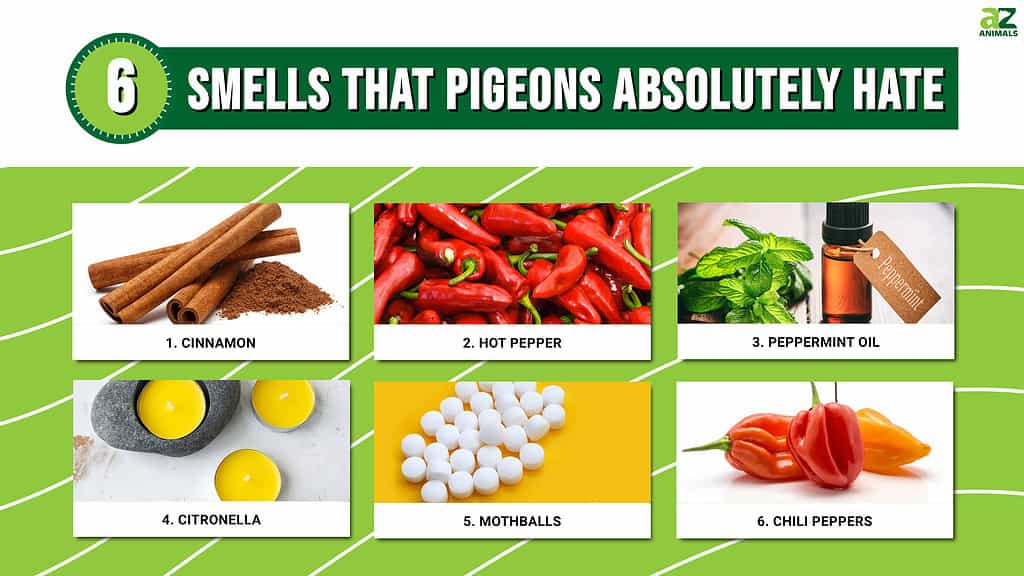
In this article, we delve into the fascinating realm of avian olfaction and uncover six smells that pigeons absolutely hate. By incorporating these scents into your surroundings, you can effectively keep these persistent pests at bay and restore peace to your living spaces. The best part is, these are natural repellents that can keep pigeons away without causing harm to them or the environment. It is a safe and humane alternative to chemical-based repellents. By using natural scents, you can create an environment that is unappealing to pigeons, encouraging them to find another location to roost or nest.
Please note that although these smells are believed to be effective in repelling pigeons, their effectiveness may vary. It’s always a good idea to consult with professionals for the most effective and humane methods of pigeon control. With that being said, let’s dive in and discover the aromatic secrets that can repel our feathered friends with remarkable success.
1. Cinnamon
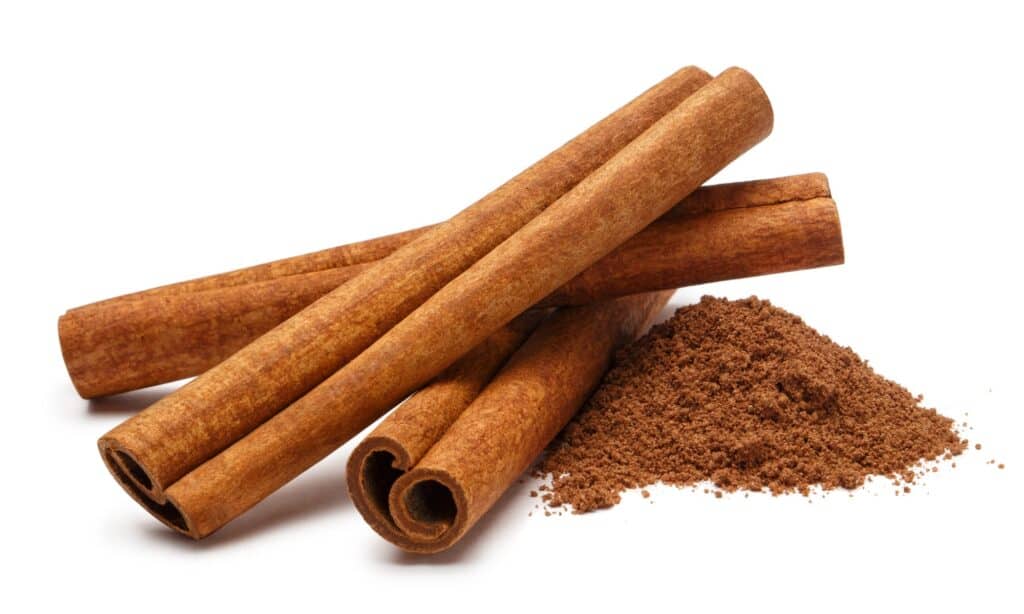
The smell of cinnamon can be a natural repellant for pigeons.
©iStock.com/Marat Musabirov
Cinnamon has been used for centuries in various cultures for its medicinal properties and distinctive fragrance. However, pigeons find this scent repulsive and tend to avoid areas where it is present. But why exactly do pigeons hate the smell of cinnamon?
One possible reason is that the strong and pungent odor of cinnamon overwhelms their sensitive olfactory receptors. Pigeons have a highly developed sense of smell, which they rely on for navigation, finding food, and identifying potential threats. When they encounter the powerful scent of cinnamon, it can be overpowering and unpleasant for them, causing them to steer clear of the area.
How to Use Cinnamon to Keep Pigeons Away
To use cinnamon as a pigeon deterrent, there are a few methods you can try. One approach is to sprinkle ground cinnamon in areas where pigeons gather or roost. This could include balconies, windowsills, or other spaces where they tend to congregate. The presence of cinnamon can create an unpleasant environment for pigeons, discouraging them from returning.
Another method is to create a cinnamon-infused spray. Mixing cinnamon essential oil with water and spraying it in areas where pigeons are a problem can help repel them. Remember to shake the mixture well before spraying each use to ensure the essential oil distributes evenly. The strong scent of cinnamon will linger in the air and deter pigeons from settling in those areas.
Effectiveness
It’s important to note that while cinnamon can be effective in repelling pigeons, it may not work for every situation. Pigeons are adaptable creatures, and if they find other food sources or nesting spots nearby, they may still persist despite the cinnamon’s scent. Combining cinnamon with other deterrents and employing a comprehensive pigeon control strategy is often the most effective approach.
2. Hot pepper
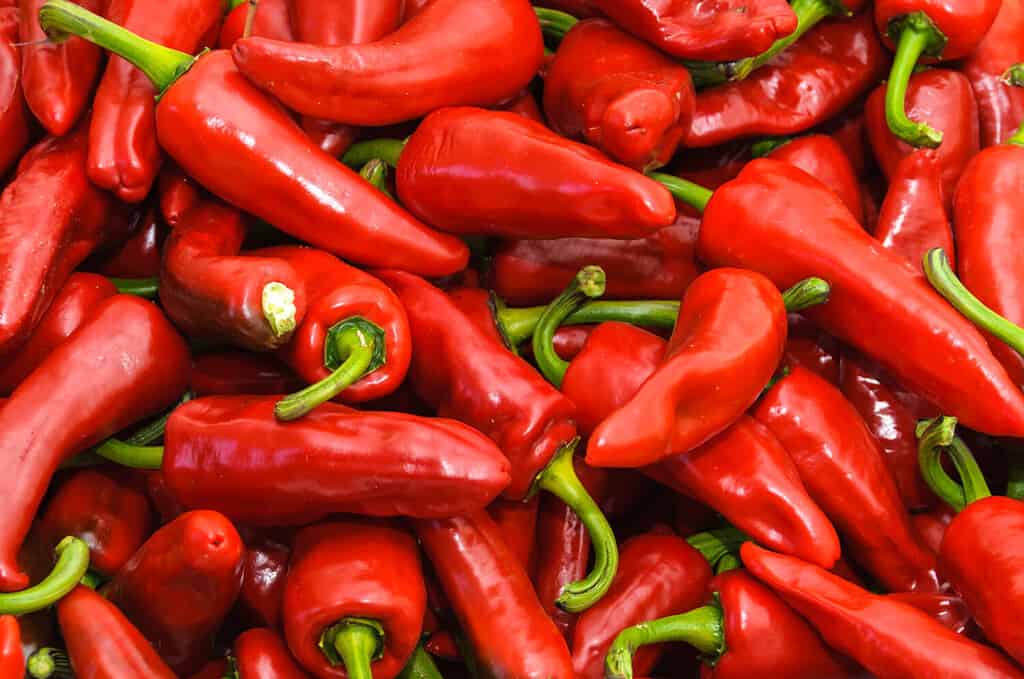
Hot peppers are a natural repellant for pigeons.
©Thomas Dutour/Shutterstock.com
One peculiar discovery is that pigeons have an aversion to the smell of hot pepper. The reason behind pigeons’ distaste for hot peppers lies in their sensitive olfactory system. Pigeons possess a highly developed sense of smell, allowing them to navigate and locate food efficiently. However, their olfactory receptors are particularly sensitive to capsaicin, the compound responsible for the spicy sensation in hot peppers. This sensitivity results in pigeons perceiving the smell of hot pepper as overwhelming and unpleasant.
How to Use Hot Pepper to Keep Pigeons Away
This natural aversion to hot pepper can be utilized to keep pigeons away from specific areas. One common method is to create a solution by mixing crushed hot pepper flakes or powder with water. You can spray or apply to surfaces where pigeons tend to congregate, such as ledges, balconies, or garden areas. The pungent scent of the hot pepper will deter pigeons from landing or roosting in those areas, effectively keeping them at bay.
It’s important to note that while the smell of hot pepper is a deterrent for pigeons, it does not cause them any harm. Unlike chemical-based repellents, the use of hot pepper as a deterrent is a safe and environmentally friendly option.
In addition to the pepper spray method, incorporating hot pepper into bird feed can also discourage pigeons from frequenting specific areas. By adding a small amount of hot pepper flakes to birdseed, the spiciness will deter pigeons from consuming the feed, causing them to seek alternatives elsewhere.
Effectiveness
It’s essential to remember that pigeons are adaptable creatures, and their aversion to hot pepper may diminish over time. Therefore, it is advisable to rotate the use of hot pepper as a deterrent, combining it with other methods such as scare devices or physical barriers, to ensure long-term effectiveness.
3. Peppermint oil
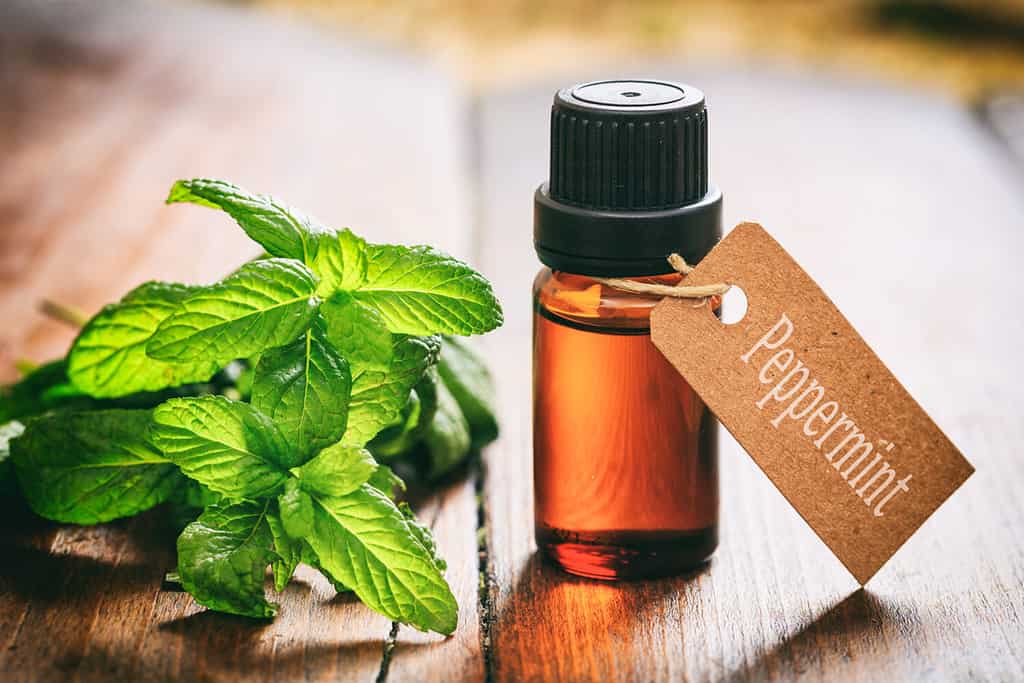
Pigeons hate the scent of peppermint oil.
©rawf8/Shutterstock.com
Pigeons dislike the smell of peppermint oil. The strong scent is unpleasant and irritating to pigeons, which is why it can keep them away.
Peppermint oil contains compounds such as menthol and menthone, which have a cooling and numbing effect. When pigeons come into contact with peppermint oil or its scent, it can cause discomfort and irritation to their respiratory system and mucous membranes. This discomfort can deter them from staying in an area where the smell is present.
How to Use Peppermint Oil to Repel Pigeons
There are several ways to use peppermint oil to repel pigeons:
Spray Solution: Mix a few drops of peppermint essential oil with water in a spray bottle. Spray the solution around areas where pigeons gather or roost, such as balconies, windowsills, ledges, or rooftops. Reapply the spray regularly to maintain the scent.
Cotton Balls: Soak cotton balls in peppermint oil and place them in areas where pigeons are a problem. The scent will deter them from staying in those areas.
Peppermint Plants: Planting peppermint plants around your property can help repel pigeons. The strong scent of the plants will discourage pigeons from roosting or nesting nearby.
Peppermint Oil Diffuser: Use a diffuser to disperse the scent of peppermint oil in areas where you don’t want pigeons. This can be particularly effective in enclosed spaces such as attics or sheds.
Effectiveness
It’s important to note that while peppermint oil can be effective in repelling pigeons, it may not provide a permanent solution. Pigeons are adaptable creatures, and they may eventually become accustomed to the scent. Therefore, it’s best to combine the use of peppermint oil with other deterrent methods for long-term pigeon control.
Remember to follow the instructions on the peppermint oil product and use it responsibly. If you have a severe pigeon infestation or need professional assistance, it’s advisable to consult with a pest control expert who can provide tailored solutions for your specific situation.
4. Citronella
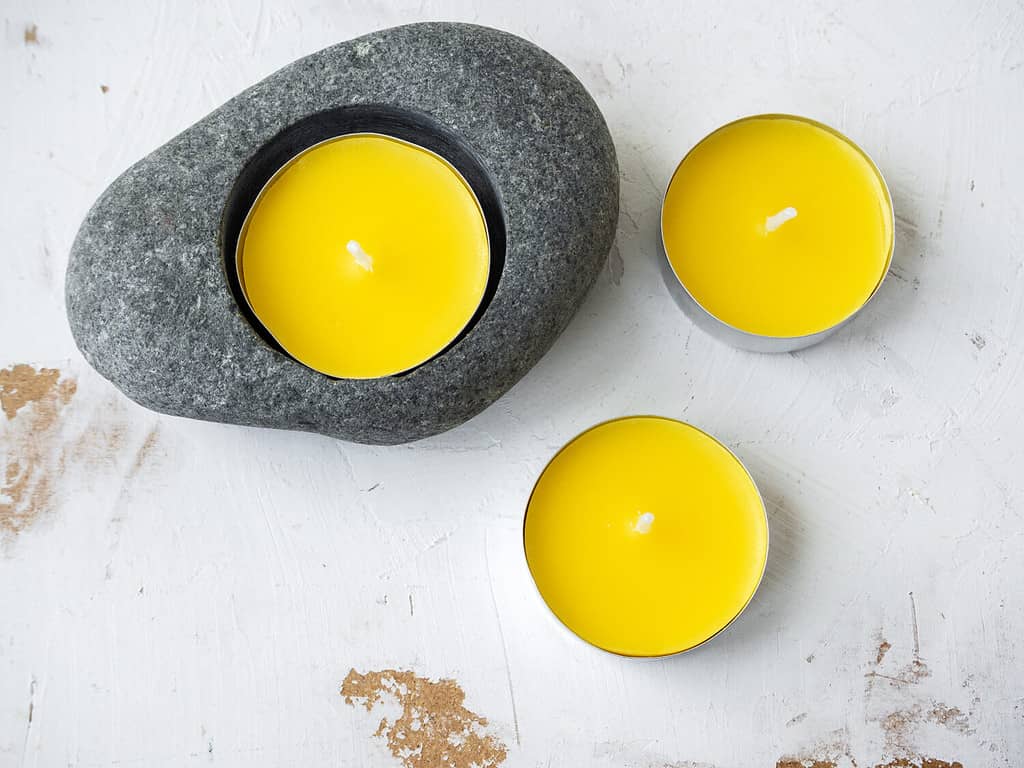
The scent of citronella is a natural deterrent for pigeons.
©Ana Belen Garcia Sanchez/Shutterstock.com
Pigeons have a natural aversion to the smell of citronella, which makes it an effective deterrent to keep them away. Citronella is a fragrant essential oil derived from certain species of grass. Here’s why pigeons dislike the smell of citronella and how you can use it against them:
Citronella has a strong and distinct scent that pigeons find unpleasant. The powerful aroma of citronella oil is overwhelming for pigeons, leading them to avoid areas where the smell is present. Pigeons’ highly developed sense of smell makes them sensitive to certain odors, and the strong fragrance of citronella oil can repel them effectively.
Citronella oil also contains compounds such as citronellal and geraniol, which have a pungent and slightly irritating effect. When pigeons come into contact with citronella oil or its scent, it can cause mild irritation to their respiratory system and mucous membranes. This discomfort can discourage pigeons from staying in areas where the smell is present.
How to Use Citronella to Repel Pigeons
Here are a few methods you can employ to use citronella oil effectively as a pigeon deterrent:
Citronella Candles: Place citronella candles strategically around areas where pigeons gather or roost, such as balconies, patios, or windowsills. The burning candles release the scent of citronella into the air, creating an unwelcome environment for pigeons.
Citronella Spray: Mix a few drops of citronella essential oil with water in a spray bottle. Spray the solution around the areas where pigeons frequent, ensuring that the scent of citronella is present. Reapply the spray regularly to maintain its effectiveness.
Citronella Diffuser: Use a diffuser or an essential oil burner to disperse the scent of citronella oil in enclosed spaces, such as attics or sheds. This can help deter pigeons from roosting or nesting in these areas.
Citronella Plants: Planting citronella plants in your garden or near areas where pigeons are a problem can act as a natural deterrent. The fragrance of the plants will discourage pigeons from settling nearby.
Remember to follow the instructions on the citronella oil product and use it responsibly.
Effectiveness
While citronella can be effective in repelling pigeons, it may not provide a permanent solution. Pigeons are adaptable creatures, and they may eventually become accustomed to the scent. Therefore, it’s best to combine the use of citronella oil with other deterrent methods for long-term pigeon control.
If you have a severe pigeon infestation or require professional assistance, it’s advisable to consult with a pest control expert who can provide tailored solutions for your specific situation.
5. Mothballs
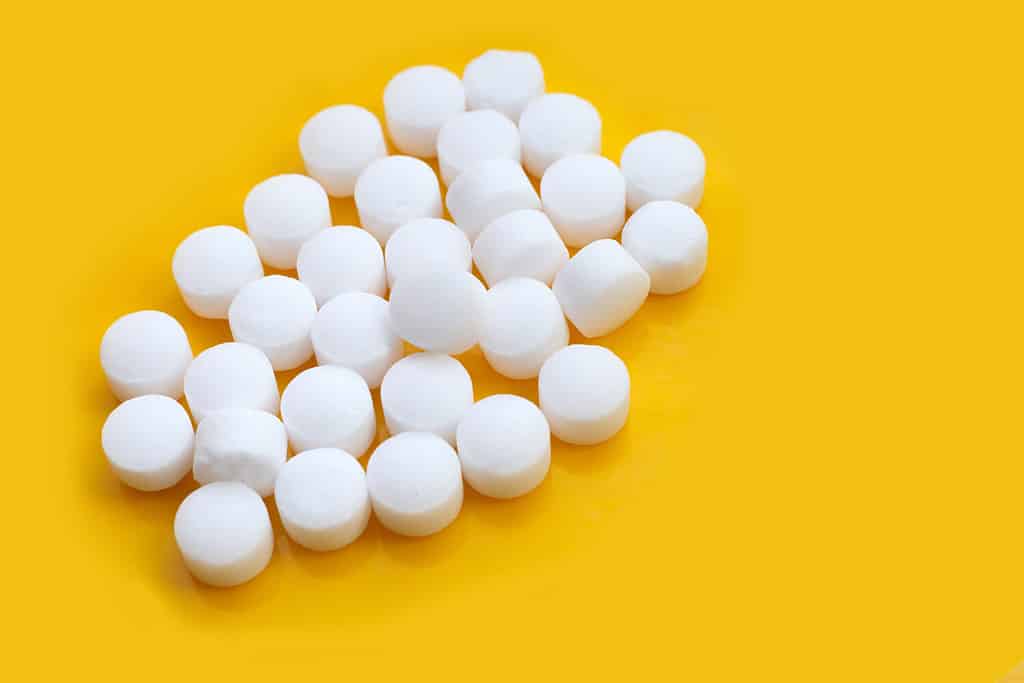
Mothballs can be a natural way to repel pigeons.
©Bowonpat Sakaew/Shutterstock.com
Pigeons have a rather peculiar aversion to the scent of mothballs. The reason behind this intriguing phenomenon lies in the chemical composition of mothballs and the unique olfactory system of pigeons.
Mothballs typically contain either naphthalene or paradichlorobenzene, both of which emit a strong and distinct odor. These chemicals are used to repel pests, particularly insects and moths, by releasing a scent that is highly unpleasant to them. Interestingly, pigeons also find this scent repulsive, and it can be effectively used to deter them from certain areas.
Pigeons possess an acute sense of smell, allowing them to navigate and locate food sources. However, their olfactory receptors are sensitive to certain odors, including those emitted by mothballs. When exposed to the smell of mothballs, pigeons experience discomfort and will instinctively avoid areas where the scent is present.
How to Use Mothballs to Keep Pigeons Away
To utilize this aversion to keep pigeons away, one can strategically place mothballs in areas where pigeons tend to congregate or roost. This could include balconies, rooftops, garden sheds, or other spaces where pigeons create a nuisance. The strong scent of mothballs acts as a natural deterrent, effectively discouraging pigeons from settling in these areas.
It is important to note, however, that the use of mothballs should be approached with caution. Mothballs contain chemicals that can be toxic if ingested or inhaled in large quantities. Therefore, it is crucial to follow safety guidelines and avoid placing mothballs in areas accessible to children, pets, or other animals.
Effectiveness
In addition to using mothballs, it is advisable to employ other deterrent techniques to create a comprehensive pigeon control strategy. These may include installing physical barriers like netting or spikes, using ultrasonic devices that emit high-frequency sounds, or even employing trained falcons or hawks as natural deterrents.
6. Chili peppers
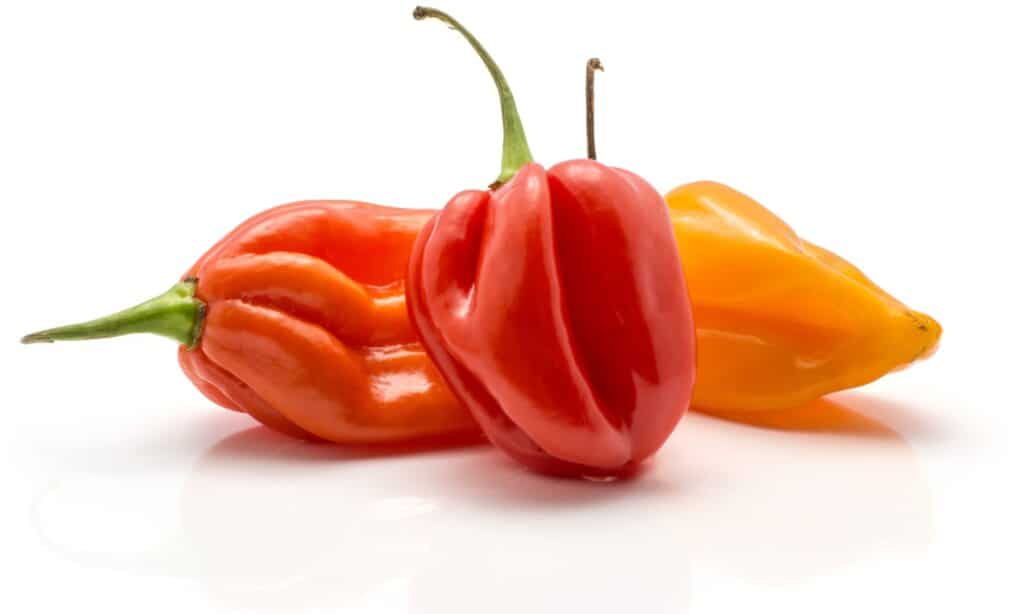
Chili peppers, like hot peppers, can also be used to deter pigeons.
©iStock.com/Kateryna Bibro
Pigeons have a strong aversion to the smell of chili peppers, making it an effective natural deterrent to keep them away. The spicy scent of chili peppers is highly unpleasant to pigeons and can be used as a safe and humane method of pigeon control.
The active compound in chili peppers that repels pigeons is called capsaicin. Capsaicin is responsible for the hot and spicy sensation we experience when consuming chili peppers. While humans may enjoy the fiery flavor, pigeons find it extremely unpleasant.
When pigeons encounter the smell of chili peppers, their sensitive olfactory system detects the presence of capsaicin. This triggers a discomfort response, causing pigeons to avoid areas where the scent is present. The strong smell of chili peppers acts as a natural deterrent, effectively keeping pigeons away from gardens, balconies, rooftops, or any other areas where they may cause a nuisance.
How to Use Chili Peppers to Keep Pigeons Away
To utilize the aversion of pigeons to chili pepper scent, you can incorporate chili pepper-based products or homemade solutions. These may include:
Chili Pepper Spray: Create a solution by mixing water and chili pepper powder or hot sauce. Spray this mixture on surfaces or areas where pigeons tend to gather or roost. Reapply the spray periodically to maintain its effectiveness.
Chili Pepper Flakes: Sprinkle chili pepper flakes around the areas you want to protect from pigeons. The flakes will release their scent and deter pigeons from landing or nesting in those areas.
Chili Pepper Infused Oil: Soak chili pepper flakes in vegetable oil for a few days to create a potent chili pepper-infused oil. Apply this oil to surfaces or mix it with water to create a spray. The strong scent will repel pigeons.
Effectiveness
It’s important to note that the effectiveness of chili pepper as a pigeon deterrent may vary. Some pigeons may become habituated to the scent over time, reducing its effectiveness. Therefore, it’s recommended to combine chili pepper methods with other pigeon control strategies for better results.
Remember to take precautions when using chili pepper-based solutions. Avoid direct contact with the skin or eyes and keep them out of reach of children and pets. Additionally, periodically reapply or refresh the chili pepper scent to maintain its potency.
The photo featured at the top of this post is © iStock.com/Nikolay Chekalin
Thank you for reading! Have some feedback for us? Contact the AZ Animals editorial team.







